Malcolm R. Campbell's Blog, page 60
February 5, 2022
Your memories make good stories
By the time you’re older than dirt you’ll probably have enough material in your mind’s memory banks to write a shelf full of novels. Unfortunately, you’ve probably also forgotten enough stuff that could have turned into another shelf full of novels. Write it before you forget it.
 My memorites of time served in the navy, working as a seasonal employee in Glacier National Park, Boy Scout camping trips, various jobs and all kinds of hobbies and avocation have provided the inspiration behind a lot of my work. The danger here is that when you’re almost older than dirt, the fictional version of those memories used in your novels and stories gets mixed up with what really happened. (I should have kept a diary.)
My memorites of time served in the navy, working as a seasonal employee in Glacier National Park, Boy Scout camping trips, various jobs and all kinds of hobbies and avocation have provided the inspiration behind a lot of my work. The danger here is that when you’re almost older than dirt, the fictional version of those memories used in your novels and stories gets mixed up with what really happened. (I should have kept a diary.)
Some memories are almost universal and capture readers who’ve gone through similar experiences:
Young love. The first time you got dumped by the person you thought you were going to marry.The cops: The various times you were caught for shop lifting, speeding, trespassing, or running guns or booze across a border.Jobs: How you got fired from a job for something you didn’t do.Travel: Crazy and wonderful things happen when we travel. Is there a story there? Probably.Family: Maybe you were the black sheep in your family. Maybe it was Aunt Flossie or cousin Jimmy. There’s probably more stuff in this category than you can shake a stick at. You can always change the names to protect the guilty.Daily life: Weird stuff (or wonderful stuff) happens every day. Sometimes there’s a story there even though your life might seem fairly normal to you.I’ve used a lot of this in my stories, though I cannot tell you when and where because, well, the truth behind the stories is rather confidential. Sure, there may be awkward questions from friends and family, such as “How did you write about these bar girls so realistically” and “You really did a good job with those drunk tank scenes; how did you know about all that?”
Imagination and research. That answers all questions even if your memories were part of the research.
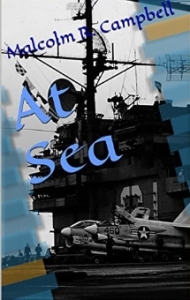 Of course a lot of stuff in this novel really happened. That’s the beauty of having been there. You have an infinite amount of material. The ship in the cover picture is the ship I served on during the Vietnam War. There were hundreds of stories there because it was a large ship and had a large crew.
Of course a lot of stuff in this novel really happened. That’s the beauty of having been there. You have an infinite amount of material. The ship in the cover picture is the ship I served on during the Vietnam War. There were hundreds of stories there because it was a large ship and had a large crew.
February 4, 2022
Might and Fog
Neither my wife nor I remember ever hearing the German phrase “Nacht und Nebel” (“Night and Fog”) in our World War II history classes. And yet, this directive from Hitler was brought up at the Nuremberg Trials, so it was certainly no secret at the end of the war, nor by the time our history classes were put together some twenty to thirty years later.
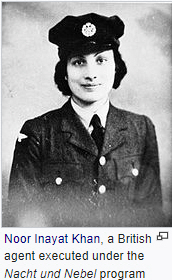 Basically, Nacht und Nebel was a policty of Hitler’s that broke the rules of the Geneva Convention in which those working against the Reich, most often in occupied countries, were arrested and subsequently put in camps or executed without any information about their fate sent to family or others. It was as though they never existed–they had been, as some novels put it–“disappeared.” Often the letters NN would be shown on any paperwork.
Basically, Nacht und Nebel was a policty of Hitler’s that broke the rules of the Geneva Convention in which those working against the Reich, most often in occupied countries, were arrested and subsequently put in camps or executed without any information about their fate sent to family or others. It was as though they never existed–they had been, as some novels put it–“disappeared.” Often the letters NN would be shown on any paperwork.
The phrase been around for a long time before Hitler, and especially Himmler used it and made it a part of the German war machine’s policy. NN not only stood for Nacht und Nebel but also for “nullus nomen” (without name) which indicates that such people were removed from the face of the earth physically and in every other way possible.
As I re-read Pam Jenoff’s novel The Lost Girls of Paris, about British agents sent to occupied France to cause trouble and send information back to Britain via wireless, I am noticing this phrase more than I did the first time through the book. I find it haunting and so unfortunately apt considering the fears and dangers of night and fog.
I generally do not like the tactics of the FBI, NSA, and CIA because we keep seeing evidence and innuendo about their spying in all the wrong places. Before all that was known, I’d always thought I’d make a reasonably good CIA agent. And yet I wonder if I ever would have had the grit and courage to do what the SOE (Special Operations Executive) agents did during World War II. Most of them didn’t last very long before they were caught.
I wonder about that, so perhaps that’s why NN bothers me in addition to the fact it “broke the rules of war.” Before I was conscious of the Night and Fog directives, I liked fog, probably because I saw so much of it as a child in San Francisco. Fog was part of the romance of San Francisco (as Tony Bennett sang in his famous song, The morning fog may chill the air, I don’t care). But now, I cannot get the Nazi practice of torturing and killing agents–or suspected agents–out of my mind.
Partly, that’s because I think it still happens in unexpected places. And from neo-Nazi regimes and groups what still prescribe the old ways.
February 3, 2022
perhaps I’ll set a story in Tallahassee
There’s a group on Facebook that focuses on remembering Tallahassee, Florida. The group’s idea of “the past” tends to focus on the memories of people who are younger than I am, so this means that when somebody asks something like, “Does anyone remember the Tsunami Cafe,” it turns out that the cafe came and went after was long gone from the town where I grew up.
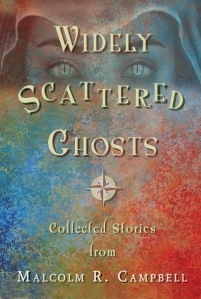 Other than a few short stories in my Widely Scattered Ghosts collection–and brief mention in a long-ago novel–I prefer placing the action of my Florida Folk Magic Series in a fictional town west of Tallahassee. Why? Because I control the town and don’t have to worry about conflicting with real events there (because there aren’t any).
Other than a few short stories in my Widely Scattered Ghosts collection–and brief mention in a long-ago novel–I prefer placing the action of my Florida Folk Magic Series in a fictional town west of Tallahassee. Why? Because I control the town and don’t have to worry about conflicting with real events there (because there aren’t any).
But placing story in Tallahassee has always bothered me because I haven’t been there since 1987 and really know very little about what’s happened there since then. However, my 1954-era novel Fate’s Arrows ends with the main character moving to Tallahassee. So, now I’m stuck. If I write a short story about her, it needs to happen in Tallahassee in the early 1950s.
Heck, I was in grade school then, so it’s not like my memories of the town will help. Fortunately, I may have found a resource that will work, one that focuses on what things were like before I was old enough to known about and/or understand what things were like in Tallahassee. It’s in the mail and will arrive by the end of the week.
I’m excited about seeing it so I can figure out just how to merge my fictional Pollyanna Hoskins character, who may or may not work for the CIA, into the real events of Florida’s capital. I hope I can make it work because–with some trepidation–I’m looking forward to going home again (figuratively speaking).
If the thing works, I’ll get back to you. If it doesn’t work, I’ll delete this post and–like the real CIA–will disavow any knowledge about anything, you know, due to national security.
February 2, 2022
looking for two lost children
 In those days, I lived in Zion, Illinois on Lake Michigan a few miles south of the Wisconsin border and commuted south to Evanston on the Chicago and Northwestern Railroad (C&NW) for my job at Northwestern University.
In those days, I lived in Zion, Illinois on Lake Michigan a few miles south of the Wisconsin border and commuted south to Evanston on the Chicago and Northwestern Railroad (C&NW) for my job at Northwestern University.
As I think back on it now, I’ve forgotten the two children’s names. I thought I never would. And I no longer remember the year–late 1970s probably.
My landlord, Brian, and I were having a few beers after supper when the radio station said volunteers were needed to look for two missing children at nearby Illinois Beach State Park. We grabbed our flashlights, got in my Jeep and drove past the C&NW tracks to the park. When we arrived, organizers were dividing volunteers into groups starting out from the point where the two, grade-school children were last seen.
Brian and I were in a group searching dense forest in a line of people several arm lengths apart. We stared from the road and moved straight ahead through the woods calling their names and covering every square foor of ground with the lights from dozens of flashlights. After several hours, all groups returned to the temporary HQ empty handed. The groups had covered the maximum area in which the two children could have walked.
We were released from the formal search as divers began working their way across a small lake. Most of the volunteers went home since it was past midnight. Those of us with off-road vehicles began checking out various areas where the kids might be if they’d been running. Some followed the dunes, others checked out marshes, and Brian and I followed Jeep trails north of the lake.
Every time we called the children’s names, we expected an answer. We thought we’d see movement within the beams of the Jeep’s headlights or our flashlights. Flat nothing.
When we got back to the staging area, we found out why. The kids had drowned in the lake. Even now, I remember the sense of desolation and defeat all of us felt. Those of us who had cigarettes, lit up two or three as we all talked out our feelings. There was much to say.
We got home late, maybe 3 a.m. or so, went to our respective apartments, and fell into bed. The following day, it would be work as usual because–as it always does after a tragedy–normal life always goes on.
 In addition to technical writing and articles, Malcolm R. Campbell has written novels and short story in the paranormal, magical realism, and contemporary fantasy genres.
In addition to technical writing and articles, Malcolm R. Campbell has written novels and short story in the paranormal, magical realism, and contemporary fantasy genres.
February 1, 2022
those innocent days of cap pistols and water guns
These days, guns are no laughing matter because kids are killing each other with the real thing, intentionally or accidentally, and it’s generally illegal to make toy guns that look too real or to make a toy gun without a splash of yellow or orange coloring at the end of the barrel.
Back in the old days, we played cops and robbers or army with cap pistols and water guns and the police and our liberal parents saw nothing wrong in that. When you got shot, you fell down , counted to 50, and then got back in the game.
Mother used to tell the story about the time she walked into my bedroom and I shot her with a water gun which, like the guns of detectives and mobsters, was at the ready in the righthand drawer of my desk.
Even though we were both laughing, she said, “What have I told you boys about loaded water guns in the house” and I said, “What have I told you about coming into my bedroom without knocking?”
We agreed to do better. When asked why she was all wet, I said I thought the sudden opening of my door was part of a mob hit.
“What?”
“Well, you and dad live at the safe end of the house, but when you come back here, you’re in a zone so dangerous that even the cops won’t patrol after dark. This is the part of the house you see on TV detective shows: it’s just not safe.”
“Oh my,” she said. “How can we fix it?”
“You and dad need to start carrying,” I said.
That was funny then, but it wouldn’t be now because kids are doing the same thing with real guns. I don’t know if our kind of playing turned evil or if changing times brought evils into our homes and schools we didn’t know existed fifty years ago. So far, the answer to the problem seems to be that all of us need to start carrying, and then when friends come over for dinner, everybody has to check their guns and ammo at the door.
As a pacifist (yeah, from that childhood, who’d have thought it), I despair at every stupid gun death in the home, the latest school shooting, and the unchecked violence against cops and others in our cities. I wish somebody had an answer. It bothers me that “they” don’t.
Counting to fifty just doesn’t work anymore.
January 30, 2022
Sunday’s gallimaufry
Educational note: The funny word in the header means “a confused jumble or medley of things.” Or, possibly hash.
T onight’s dinner is Kraft Mac & Cheese. Any questions?Yes, Virginia, there is a Santa Claus, and he’s delivered a festive batch of cold air, dangerous chill factors, and a dusting of snow to the Southern states. This goes to show that he likes us a lot more than those poor clowns in Boston and points north. A Facebook meme advised those of us in Georgia who aren’t used to snowy roads to drive as though granny’s in the back seat wearing a new dress and holding a crock pot of gravy on her lap.
onight’s dinner is Kraft Mac & Cheese. Any questions?Yes, Virginia, there is a Santa Claus, and he’s delivered a festive batch of cold air, dangerous chill factors, and a dusting of snow to the Southern states. This goes to show that he likes us a lot more than those poor clowns in Boston and points north. A Facebook meme advised those of us in Georgia who aren’t used to snowy roads to drive as though granny’s in the back seat wearing a new dress and holding a crock pot of gravy on her lap.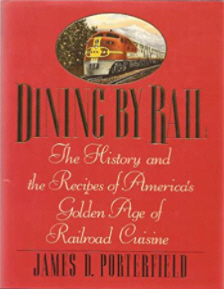 Dining by Rail. This is my favorite book of railroad dining car recipes and history. The book was written by a chef who compiled these culinary delights for home use. See my review on the Depot Cafe blog. The recipes are very good and worthy of trying out on granny.Santa brought me a jar of Burt’s Bees ointment. Little did I know that I was doing to get clawed up by one of our cats ending up with an arm that’s black and blue and bleeding. The bee stuff seems to be helping. (I was not paid anything by Burt to include this endorsement.)
Dining by Rail. This is my favorite book of railroad dining car recipes and history. The book was written by a chef who compiled these culinary delights for home use. See my review on the Depot Cafe blog. The recipes are very good and worthy of trying out on granny.Santa brought me a jar of Burt’s Bees ointment. Little did I know that I was doing to get clawed up by one of our cats ending up with an arm that’s black and blue and bleeding. The bee stuff seems to be helping. (I was not paid anything by Burt to include this endorsement.) Finally, Kumquats. Every year during kumquat season, I ask the produce manager at Publix where they’ve hidden in kumquats. The what? So, I’ve gone to the Publix website and asked the same question, and for years I’ve heard stuff like “our grower switched to another product” and “the kumquats got carried off by seagulls and manatees.” This year, for a brief shining moment, the store had kumquats. I think I bought most of them.
Finally, Kumquats. Every year during kumquat season, I ask the produce manager at Publix where they’ve hidden in kumquats. The what? So, I’ve gone to the Publix website and asked the same question, and for years I’ve heard stuff like “our grower switched to another product” and “the kumquats got carried off by seagulls and manatees.” This year, for a brief shining moment, the store had kumquats. I think I bought most of them.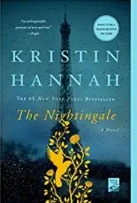 Re-reading great books: I re-read books that I like multiple times. This week, it’s Kristin Hannah’s The Nightingale. This book is beautifully written even thought the Nazi actions and characters make me angry enough to spit nails–or worse. As an author, I’m impressed with the research Hannah had to do get her facts right while creating an authentic ambiance for the times and people. I feel the same way about The Dove Keepers and a few other books that my reading addicition draws me back to again and again.
Re-reading great books: I re-read books that I like multiple times. This week, it’s Kristin Hannah’s The Nightingale. This book is beautifully written even thought the Nazi actions and characters make me angry enough to spit nails–or worse. As an author, I’m impressed with the research Hannah had to do get her facts right while creating an authentic ambiance for the times and people. I feel the same way about The Dove Keepers and a few other books that my reading addicition draws me back to again and again.Have a great weekend,

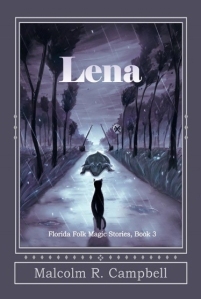 Malcolm R. Campbell writes books that–well, at least some of them–are worth keeping on your nightstand to re again and again.
Malcolm R. Campbell writes books that–well, at least some of them–are worth keeping on your nightstand to re again and again.
January 29, 2022
Thumbing my nose at authority for 50+ years
Politics is the art of looking for trouble, finding it everywhere, diagnosing it incorrectly and applying the wrong remedies. – Groucho Marx
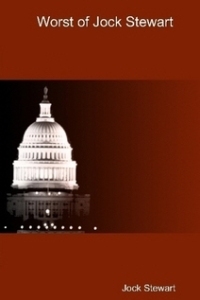 My problems with authority began in grade school and continue to this day. You see some evidence of that in the occasional fake news stories printed in this blog under the pseudonym Jock Stewart. I used to write these on earlier blogs and collected some of them in a book published by Lulu ten years ago. (It’s still there.)
My problems with authority began in grade school and continue to this day. You see some evidence of that in the occasional fake news stories printed in this blog under the pseudonym Jock Stewart. I used to write these on earlier blogs and collected some of them in a book published by Lulu ten years ago. (It’s still there.)
A previous publisher saw these satircal news stories on my earlier blos and kept collecting them into novella-length collections. They’re no longer there because that publisher is no longer there.
The people who know me well (wife, neighbors, family, publisher) believe the “real me” is Jock Stewart rather than the angelic persona you see on this blog. The people who think I’m Jock Stewart believe that my thriller/satire novel Special Investigative Reporter is a memoir.
Maybe yes, maybe no.
 In general, I agree with Groucho though, of course, I don’t get any traction out of that because he’s no longer there. Pratically speaking, I think politicians should have expiration dates so that they can do less damage to the country.
In general, I agree with Groucho though, of course, I don’t get any traction out of that because he’s no longer there. Pratically speaking, I think politicians should have expiration dates so that they can do less damage to the country.
My superiors in the Navy knew I had this impression about them, meaning that my relationship with the brass was about like that of Alan Alda’s relationship with the brass in M*A*S*H. You’ll see some of this attitude in my Vietnam War novel At Sea.
In general, my authority problems have served me well in writing novels and short stories about people with authority problems. So that’s good, right?
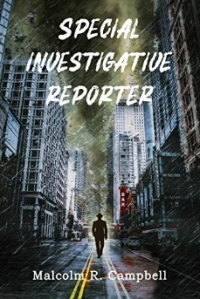 Malcolm R. Campbell writes satire because, well, society needs a quasi-sane voice in this chaotic old world of ours who’s not afraid to to call a crook a crook. He stands ready to swear on a stack of phone books that “Special Investigative Reporter” is fiction. Well, mostly.
Malcolm R. Campbell writes satire because, well, society needs a quasi-sane voice in this chaotic old world of ours who’s not afraid to to call a crook a crook. He stands ready to swear on a stack of phone books that “Special Investigative Reporter” is fiction. Well, mostly.
January 28, 2022
Do you ‘see’ what’s happening in a novel while you read it?
I’m reading a thriller in which the good guys are following a bad guy who doesn’t realize he’s being followed by another bad guy who doesn’t earlize he’s being tracked by a team of bad guys. The good guys notice this parade of trackers tracking trackers and have to decide just what the hell’s going on. In a Peter Sellers movie, this would be funny. In an action/thriller novel it should keep readers turning pages. As it is, it’s a mess.
Recently, I asked “Do you ‘see’ your story as you write?'” As I read about this mess of people following people, I can’t see it. In some ways, it’s too complex. But more importantly, the action is happening so fast, the author (apparently) didn’t have time to take breath and describe anything coherently. So, I can’t ‘see’ what’s going on or the ‘arena’ in which it’s going on.
 At this point, I feel like I’m reading the author’s rough sketch of the action without being allowed to see the action because, probably, the author couldn’t see it either. To some extent, this is yet another show don’t tell issue. Obviously, a writer cannot show everything unless s/he wants a thousand-word novel. But s/he has to show enough for the reader’s imagination to be drawn into an event that seems real rather than a mind game–or an outline.
At this point, I feel like I’m reading the author’s rough sketch of the action without being allowed to see the action because, probably, the author couldn’t see it either. To some extent, this is yet another show don’t tell issue. Obviously, a writer cannot show everything unless s/he wants a thousand-word novel. But s/he has to show enough for the reader’s imagination to be drawn into an event that seems real rather than a mind game–or an outline.
In the novel I’m reading, the author has a penchant for followers following the followers. But he isn’t controlling his material because the reader is being lost in the shuffle without a clue, especially after multiple scenes in which everyone seems to be following everyone.
This is the last thing a reader wants and should be the last thing an author wants. Do some editing. Fine-tune the settings and the people moving about within those settings. Otherwise, there’s nothing to see–and that means readers throwing down the book in disgust. If the reader can’t ‘see’ it, the writer has failed big time.
Malcolm R. Campbell is the author of multiple novels and short stories:
January 27, 2022
Holocaust novel ‘Maus’ banned in Tennessee school district
ATHENS, Tenn. (AP) — A Tennessee school district has voted to ban a Pulitzer Prize-winning graphic novel about the Holocaust due to “inappropriate language” and an illustration of a nude woman, according to minutes from a board meeting.
Source: Holocaust novel ‘Maus’ banned in Tennessee school district | AP News
The Associated Press notes that “The nude woman is drawn as a mouse. In the graphic novel, Jews are drawn as mice and the Nazis are drawn as cats.”
According to a tweet by the U.S. Holocaust Museum: “Maus has played a vital role in educating about the Holocaust through sharing detailed and personal experiences of victims and survivors. On the eve of International #HolocaustRemembranceDay, it is more important than ever for students to learn this history.”
One news story, which I cannot find now, noted that it’s increasingly difficult to teach historical events to students who weren’t even born when 9/11 occurred. I can see how this would be a challenge to history teachers: making the events of the past relevant to a generation focused on texting the current moment as though there were never any earlier moments.
Maus is not a pleasant book, but then neither is the subject matter and the lessons we learn from being made uncomfortable about the world’s worst moment are, I think, vital to our understanding of how we became the people we are now.
January 26, 2022
Diana Gabaldon to receive Great Scot Award
from the National Trust for Scotland Foundation
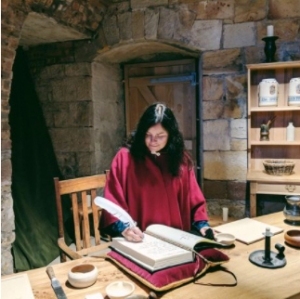
January 18, 2022, New York City – American author Diana Gabaldon has brought the romance and drama of Scottish history to life for more than 50 million readers worldwide with her best-selling Outlander novels. Now, The National Trust for Scotland Foundation USA will recognize her extraordinary contributions to Scotland and America’s shared heritage by presenting her with the 2022 Great Scot Award at their 15th annual fundraising gala, A Celebration of Scotland’s Treasures, on April 14, 2022.
“2022 has been designated Scotland’s Year of Stories, and so it seems especially appropriate to honor Diana Gabaldon, whose stories have come to embody Scotland and Scottish culture for millions of readers and television watchers around the world,” said Helen E.R. Sayles CBE, The National Trust for Scotland Foundation USA’s chair. “We are delighted to have the opportunity to thank her for inspiring so many to explore and fall in love with Scotland.”
Ms. Gabaldon’s first novel, Outlander, was published in 1991, and the story has extended across eight additional New York Times bestselling volumes. The latest, Go Tell the Bees That I Am Gone, was published in November 2021.
Largely set in 18th-century Scotland, many of the Outlander novels use actual historic events as the backdrop for Claire and Jamie Fraser’s romance. Some of these, including the 1746 Battle of Culloden, are historic sites now in the care of the National Trust for Scotland.
In addition, National Trust for Scotland properties including Falkland Palace, Preston Mill, and the Village of Culross, have been used in filming the Sony / Starz television series based on Ms. Gabaldon’s work. The series stars Catriona Balfe and Sam Heughan, and its sixth season premieres on March 6, 2022.
“I have seen firsthand how American readers have embraced Scottish culture through their love of Outlander,” said Kirstin Bridier, executive director of NTSUSA. “Many of her readers have contributed generously to the preservation of National Trust for Scotland sites associated with the novels and television show – sites like Preston Mill. We could not ask for a better ambassador for our work.”
The presentation of the Great Scot Award is at the heart of a black-tie event that raises funds to support Scotland’s largest conservation charity. Past recipients of the award include documentary filmmaker Ken Burns, comedian Sir Billy Connolly, Golden Globe-winning actor Brian Cox, endurance athlete and world-record breaking cyclist Mark Beaumont, sculptor Andy Scott, and authors Denise Mina and Alexander McCall Smith.
A Celebration of Scotland’s Treasures is a festive evening that features a whisky tasting by The Macallan; the recitation of Burns’ Ode to a Haggis by Alasdair Nichol, Chairman of Freeman’s auction house and a frequent appraiser on PBS’s Antiques Roadshow; Scottish country dancing; and live and silent auctions. Before heading home, guests form a circle, clasp hands, and sing Auld Lang Syne.
—Meal do naidheachd, a sheann charaid!(Congratulations, old friend!)—Malcolm




